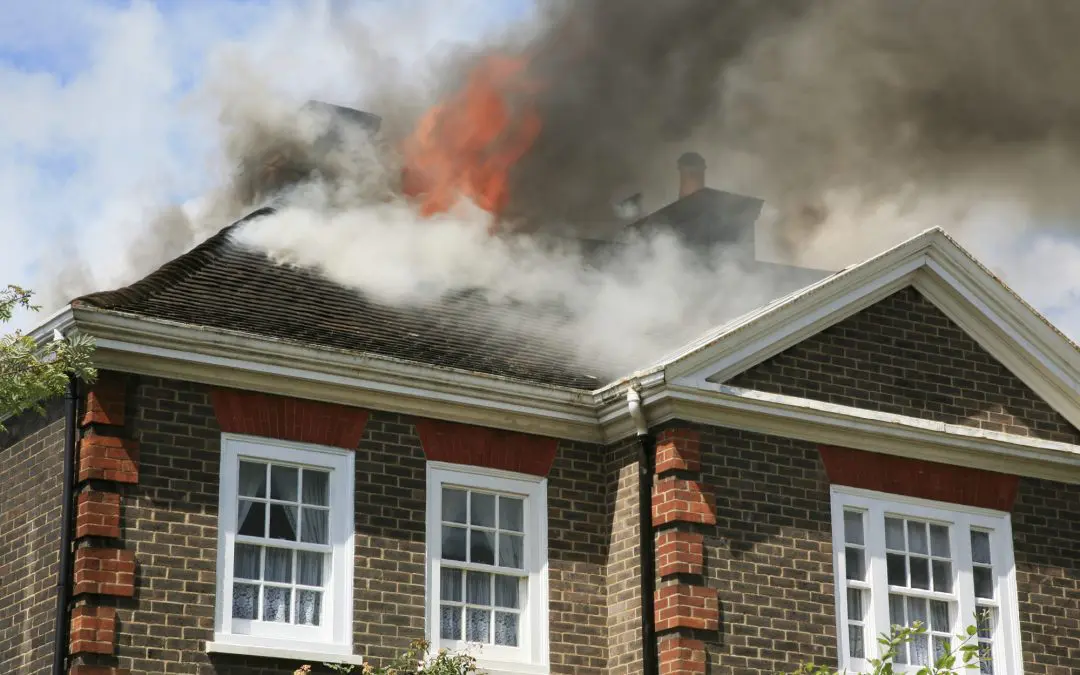House fires can be devastating, but many are preventable with proactive measures. Understanding common fire hazards and implementing effective prevention strategies can greatly reduce your risk. Here’s a comprehensive guide to help you prevent a house fire.
Understand the Causes to Prevent a House Fire
House fires can start from various sources, including cooking, heating equipment, electrical systems, and smoking. By being aware of these common causes, you can take steps to address potential hazards before they escalate into a dangerous situation.
Maintain Your Cooking Equipment
Cooking is a leading cause of house fires. To prevent fires in the kitchen, never leave cooking unattended. Keep flammable materials away from the stovetop, and ensure your cooking appliances are in good working condition. Regularly clean your oven and stovetop to prevent grease buildup, which can ignite and cause a fire.
Ensure Proper Use and Maintenance of Heating Equipment to Prevent a House Fire
Heating equipment, such as space heaters, furnaces, and fireplaces, needs regular maintenance to operate safely. Keep space heaters at least three feet away from flammable materials, and never use them while sleeping. Have your furnace and chimney inspected and cleaned annually by a professional to ensure they function correctly and safely.
Inspect and Maintain Electrical Systems
Electrical issues are a significant fire risk. Regularly inspect your electrical system for any signs of wear or damage. Avoid overloading outlets and power strips, and never run cords under carpets or furniture. If you experience frequent circuit breaker trips or notice unusual smells or sparks from electrical devices, consult a licensed electrician immediately.
Practice Safe Smoking Habits
Smoking is another common cause of house fires. If you smoke, do so outside and use a deep, non-combustible ashtray. Never discard cigarette butts or matches into trash cans or planters. Ensure that all smoking materials are completely extinguished before disposing of them.
Install and Maintain Smoke Alarms
Smoke alarms are crucial for early fire detection. Install smoke alarms in every bedroom, outside each sleeping area, and on every level of your home. Test alarms monthly to ensure they are working correctly, and replace batteries at least once a year. Consider installing interconnected smoke alarms that alert you to smoke anywhere in your home.
Have a Fire Escape Plan
A well-thought-out fire escape plan can save lives. Create a plan that includes multiple exit routes from every room and a designated meeting place outside your home. Practice this plan with all household members, ensuring everyone knows what to do in case of a fire. Regular drills help ensure everyone remains calm and understands their role during an emergency.
Store Flammable Materials Safely
Flammable materials, such as gasoline, paint, and cleaning products, should be stored safely. Keep these items in their original containers, and store them in a cool, dry place away from heat sources and open flames. Ensure that containers are tightly sealed to prevent leaks or spills.
Regularly Clean Your Home to Help Prevent a House Fire
A clean home reduces fire risks by minimizing clutter and removing potential fuel sources for a fire. Regularly dispose of old newspapers, magazines, and other paper products. Ensure that storage areas, such as attics and basements, are organized and free from excessive clutter.
Preventing a house fire requires vigilance and regular maintenance. Understanding common fire hazards and implementing these safety measures can significantly reduce the fire risk and protect your home and loved ones. Stay proactive, stay safe, and remember that taking these steps now can make all the difference in an emergency.
FAQs
How often should I clean my dryer vent to prevent fire hazards?
Clean your dryer vent every 6 to 12 months, depending on usage. Lint buildup in the vent can restrict airflow and increase the risk of fire. Regular cleaning helps ensure efficient operation and reduces fire hazards.
Are there fire risks associated with home renovations?
Yes, home renovations can introduce new fire risks, such as exposed wiring or flammable materials. Ensure that any electrical work is performed by a licensed electrician and that building materials are safely stored and handled. Follow all safety guidelines during renovations.
How can I ensure my home is safe when renting it out to tenants?
When renting out your home, ensure that smoke alarms, carbon monoxide detectors, and fire extinguishers are installed and functional. Provide tenants with clear fire safety instructions and conduct regular property inspections to maintain safety measures.
What fire safety precautions should I take when using power tools in my garage or workshop?
When using power tools, keep the work area clean and free of flammable materials. Ensure that tools are in good working condition and are used according to manufacturer instructions. Have a fire extinguisher nearby, and never leave tools unattended while they are in use.
TUFF Home Inspections offers professional inspections to homebuyers and sellers in New Jersey. Contact us to request an appointment.

